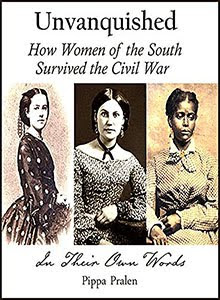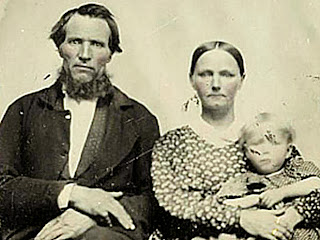Food was scarce for the South, but they tried to celebrate Christmas and the Holidays. Here is a frugal recipe used for party cakes in the South.
|
Ingredients
1 c. brown sugar 1 c. raisins 1 tbsp. butter 1 tsp. vanilla 4 c. water 7 tbsp. butter 1/2 c. white sugar 2 tsp. baking powder 1/2 c. milk 1 c. flour Boil together the first 5 ingredients. Make a batter of the second 5 ingredients. Drop the batter in a greased pan by spoonfuls. Pour first mixture over it and bake in a moderate oven until golden brown. Source: Cooks.com It was popular because it used only a few, inexpensive, easy to obtain ingredients and is fool-proof. Even an "idiot" can make it. |











